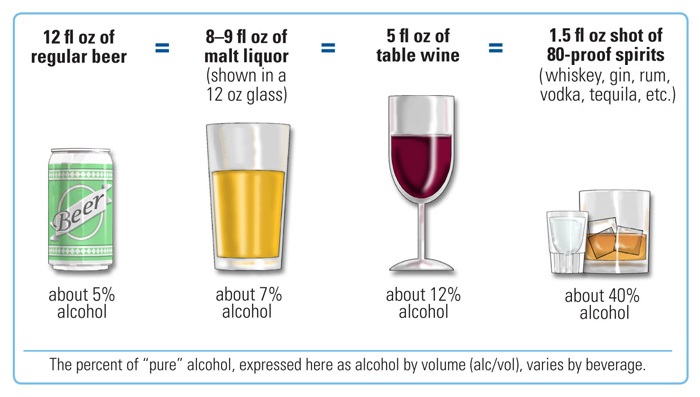Benifits of Drinking Alcohol And De-benifits of Drinking Alcohol.
Best Researches on Alcohol Which Prove Alcohol is Good For Health
Alcohol:
1)BEST BENIFITS:
*Moderate consumption cuts heart attack risk by raising HDL cholesterol and reducing the risk of blood clot formation.*May protect the brain against age related dementia.
*In small amount, it can improve appetite and aid digestion.
*May foster a happy mood.
2)DRAWBACKS:
*Can provoke mood swings, aggression and hangovers. Can be addictive.*Interacts with many medications.
*Over time, moderate to high intake increases the risks of cancer as well as heart and liver disease.
People have used alcohol in one form or another since pre historic times. While alcohol is primarily drunk for its mood-altering
the results of recent stucdies suggest that the
are benefits to moderate drinking, (Moderate drinking is defined as one or two drinks containing either 1 ½ oz/45 ml of alcohol,5 oz
150 ml of wine, or 12 oz/355 ml of beer, each.)
WHAT IS ALCOHOL?
Ethyl alcohol (ethanol), the main active ingre-dient of alcoholic beverages, is made by yeast fermentation of starch or sugar. Almost any sweet or starchy food-potatoes, grains, honey grapes and other fruits, even dandelions-can be turned into alcohol.Unlike most foods, alcohol is not digested;95 percent of it is absorbed into the blood-stream from the stomach and small intestine
within an hour. (The other 5 percent is eliminated through the kidneys, lungs, or skin.) The liver breaks down, or metabolizes, alcohol, this time this takes depends upon whether the alcohol is ingested with food and upon the persons sex, weight, body type, and tolerance level,increases with time and use. On average,
however, it takes the liver 3 to 5 hours to completely metabolize 1 oz (30 ml) of alcohol.
LATEST MEDICALOF RESEARCH ALCOHOL:
Recent medical studies have found that drink-ing small amounts of alcohol, especially redwine, lowers the risk of a heart attack. This is good news for anyone who enjoys a little Chianti with their chicken. But the news also raises other questions: Does alcohol provide other protective health benefits? And can pro-rection come with red wine only?Another study revealed that having two alcoholic drinks a day offers more than double the protection from cardiovascular disease than one drink provides. In the long term, having one drink a day lowers your risk by 5 percent,but having two cuts it by 10 to 13 percent.The risk of a heart attack lowers because alcohol reduces the detrimental effects of ele-vated blood cholesterol while also preventing clot formation. In this study levels of bad cho-lesterol (low-density lipoprotein, or LDL) low-ered, as did triglyceride levels: High levels of either raise the risk of heart disease. Other studies that show that moderate drinking may increasethe levels of protective (high-density lipoprorein, or HDL) cholesterol.
The mechanisms by which alcohol protects are still unclear, but some researchers note that because red wines in particular contain certairn polyphenols, which can act as antioxidants-resveratrol being the prime example-they can be expected to protect cells from damage that normally occurs when the body uses oxygen. It's believed that oxidation of LDLs is what causes blood vessels to clog. The polyphenols may also fortify LDL cholesterol against oxidation It is not just red wine that's protective. The results of several studies have linked the moder-ate consumption of alcohol with a 32 percent lower risk of heart attack, and a decrease in stroke of 20 to 28 percent. Results from other studies also suggest that people who drink light to moderate amounts of alcohol daily signifi-cantly lower their risk of diabetes.
ALCOHOL PROTECTS THE BRAIN
Benefits:
A 2002 study reports that people who imbibe moderately daily were 70 percent less likely than nondrinkers to develop dementia, an age-related decline in mental ability; they
were also more than 30 percent less likely to develop Alzheimer's disease. Alcohol ap-
pears to offer a number of brain-related benefits.
It thins the blood and help prevent clots from jamming tiny blood vessels in the brain and it appears to stimulate the release of acetylcholine,a brain chemical involved in learning and memory.
Consume no more than two drinks daily alcohols protective effects are indeed impressive but studies also show that over consumption in a significantly raise the risk of developing a number of health problems including high blood pressure and Cardiac arrhythmias.
To benefit from the nutrients in these beverages, you would have to consume much more than the recommended limit of two drinks per day for a man or one for a woman. Each beverage listed below provides about /2 oz (15 ml) of ethanol, the usual definition of a drink.
were also more than 30 percent less likely to develop Alzheimer's disease. Alcohol ap-
pears to offer a number of brain-related benefits.
It thins the blood and help prevent clots from jamming tiny blood vessels in the brain and it appears to stimulate the release of acetylcholine,a brain chemical involved in learning and memory.
Consume no more than two drinks daily alcohols protective effects are indeed impressive but studies also show that over consumption in a significantly raise the risk of developing a number of health problems including high blood pressure and Cardiac arrhythmias.
What's a in a Drink?
Alcohol contains 7 calories per gram, compared with 4 calories per gram of protein or carbohydrate and 9 calories per gram of fat Some wines provide small amounts of iron and potassium, and beer contains niacin, vitamin B,, chromium, and phosphorus.To benefit from the nutrients in these beverages, you would have to consume much more than the recommended limit of two drinks per day for a man or one for a woman. Each beverage listed below provides about /2 oz (15 ml) of ethanol, the usual definition of a drink.
So guys these are the some best benefits and de-benefits of drinking or consuming alcohol.
hope you liked it
please comment and subscribe to my blog
thank you.






No comments:
Post a Comment